Advocacy
Norwalk River Watershed Association2022 Legislative Bills We Supported that Passed
SB 120 AN ACT CONCERNING THE USE OF CHLORPYRIFOS ON GOLF COURSES AND NEONICOTINOIDS FOR NONAGRICULTURAL USE.
This bill passed but the neonic protections were stripped from the language at the last minute. In 2023 we hope there will be a CT bill to ban neonics.
Neonicotinoids or “neonics” are neurotoxic pesticides linked to massive bee and insect losses around the globe and, increasingly, to vast water and soil contamination, ecosystem-wide harms, and human health concerns. Cornell University research reveals that the neonic uses that pose the greatest threats to bees are also those that provide little-to-no benefits to users or are easily replaceable with safer alternatives. SB 120 strengthens CT’s 2016 Pollinator Protection Act by prohibiting these wasteful uses on residential landscapes such as lawns and golf courses. READ MORE ABOUT NEONICS HERE.
Dow’s nerve gas pesticide chlorpyrifos has devastating impacts on our health, children’s developing brains, and our environment. The federal government has banned chlorpyrifos on food crops, but 90% of chlorpyrifos usage in CT is on golf courses for cosmetic purposes. READ MORE ABOUT CHLORPYRIFOS HERE.
Here is our letter of support for this bill.
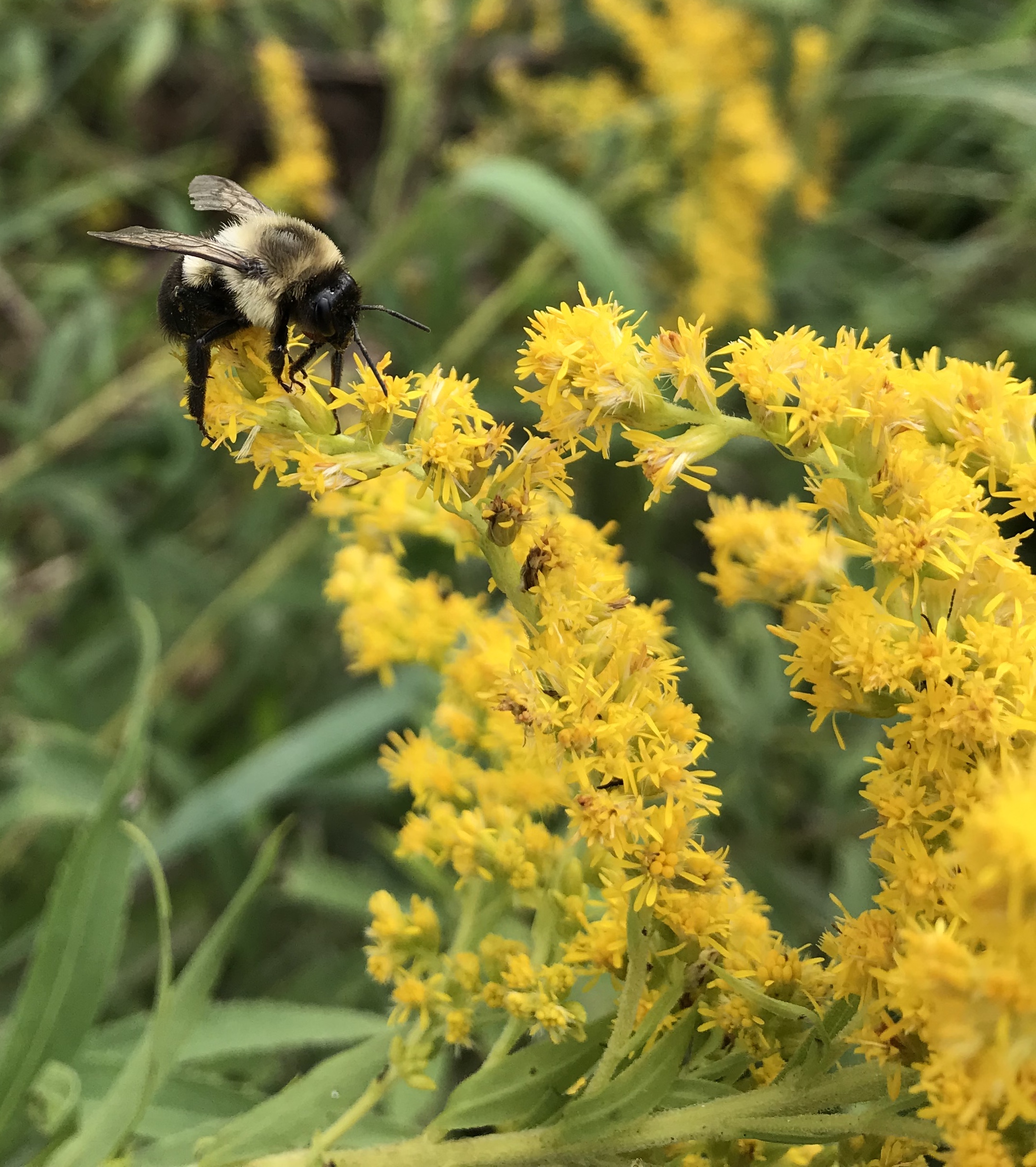
Please call or e-mail your State Representative and State Senator TODAY! Below are their phone numbers and a link to find out who your elected officials are and how to contact them via e-mail.
House Democrats – 860-240-8500
House Republicans – 860-240-8700
Senate Democrats – 860-240-8600
Senate Republicans – 860-240-8800
Not sure who your elected officials are, CLICK HERE
SB 240 AAC THE USE OF SODIUM CHLORIDE TO MITIGATE SNOW AND ICE ACCUMULATIONS
High salt concentrations due to winter de-icing efforts are an increasing threat to the public water supply and private wells. Rising chloride concentrations are a real and increasing threat to aquatic life in the Norwalk River and to plants and wildlife throughout the watershed. Data shows chloride levels rising dramatically in the Norwalk River as measured in the rate of conductivity documented by Harbor Watch with decades of water monitoring. Click HERE for an overview.
An important transportation corridor (US Rte 7) follows the little Norwalk River. There is extensive commercial development adjacent to Rte 7. Large parking lots and other impervious surfaces, both public and privately owned may be heavily treated with de-icing salts that drain directly into the River.
Green Snow Pro Certification is a real win-win, allowing municipalities and private contractors to save thousands of dollars in reduced salt expenditures while saving our environment and drinking water!
Please ask your representatives to support passage of SB 240, whose purpose is to provide training, certification and protection from liability for applicators of sodium chloride who use best practices when applying sodium chloride. Please also ask that the language pertaining to drinking water be broadened generally to include both surface and groundwater.
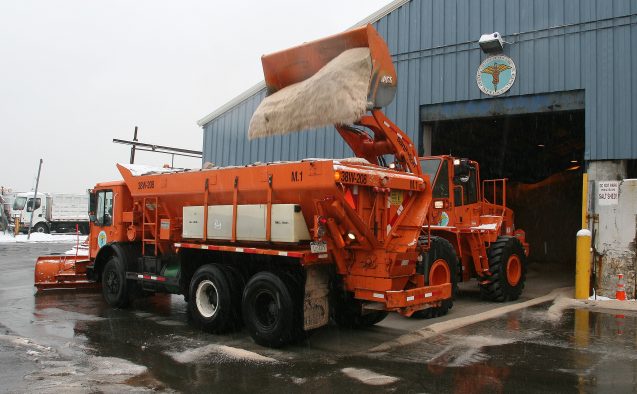

HB 5143 AN ACT ESTABLISHING AN OFFICE OF AQUATIC INVASIVE SPECIES is another bill important bill for protecting our rivers. Pictured right is the hugely problematic invasive plant hydrilla in the Connecticut River.
A letter of support for this bill from our friends at Rivers Alliance.
SB 117 AN ACT CONCERNING TREE REMOVAL ON PROPERTIES UNDER THE CONTROL OF THE DEPARTMENT OF ENERGY AND ENVIRONMENTAL PROTECTION. To improve transparency and establish standards for the removal of trees and shrubs that constitute an immediate public hazard at state parks and campgrounds. Important testimony.
BILLS WE SUPPORTED THAT DID NOT PASS
HB 5140 AN ACT CONCERNING THE HAND-HARVESTING OF HORSESHOE CRABS IN THE STATE. To prohibit the hand-harvesting of horseshoe crabs from the waters and shoreline of the state in order to protect the horseshoe crab population. Important testimony about the bill.
SB 239 AN ACT PROHIBITING THE USE OF CERTAIN RODENTICIDES FOR THE PROTECTION OF HAWKS, RAPTORS AND OTHER WILDLIFE. To prohibit the use of certain rodenticides in locations such as state parks and forests for the protection of hawks, raptors and other wildlife that feed upon such rodents. Testimony from the Humane Society.
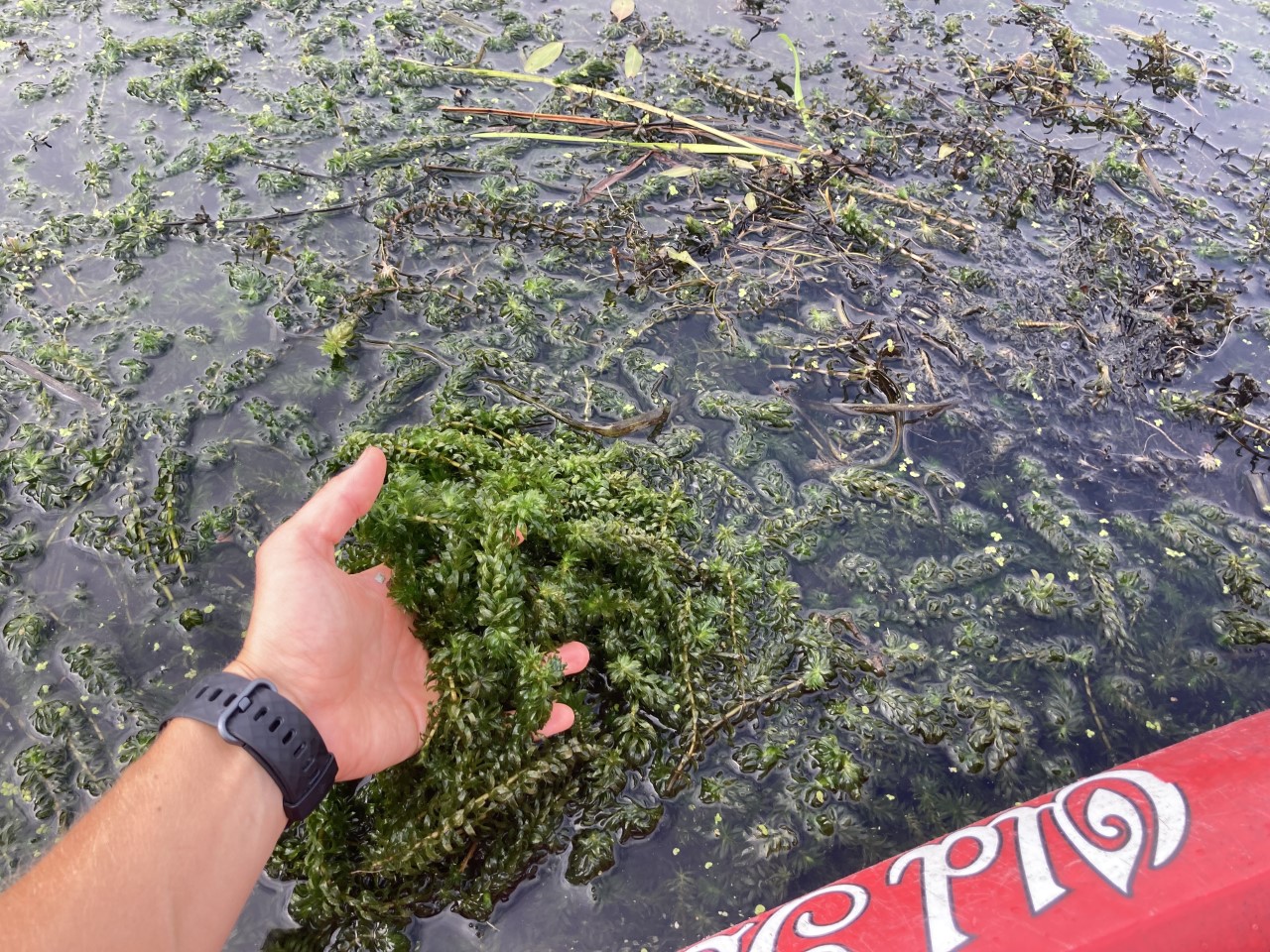
__________________________________________________________________________________________________________________________________________________________
2021 Policy Victories! PFAS & updating the Bottle Bill
SB 926 AN ACT CONCERNING THE PRESENCE OF PFAS IN CERTAIN CONSUMER PACKAGING. NRWA’s letter of support. Great news! This PFAS bill was voted out of the Environment Committee on March 29 and will be voted on by the State Senate!
S.B. 837 AN ACT CONCERNING THE USE OF PERFLUOROALKYL OR POLYFLUOROALKYL SUBSTANCES IN CLASS B FIREFIGHTING FOAM. NRWA’s letter of support.
S.B. 1037: An Act Concerning Solid Waste Management (This will update the Bottle Bill!). NRWA’s letter of support.
NRWA’s Goals for Policy Protecting Water
1. Restrict & Monitor toxic PFAS Chemicals to protect drinking water, human health and the environment by
- banning the use of this class of chemicals in fire fighting foam, where not required by the Federal Government (Accomplished!)
- limiting their use in food packaging and food service wear. More on PFAS in food packaging. (Accomplished)
- funding and expanding monitoring of drinking water sources and other high risk sites for PFAS
- establishing a health-protective minimum contaminant level (MCL) for the entire class of PFAS chemicals in drinking water.
The acronym PFAS stands for perfluoroalkyl and polyfluoroalkyl substances, a class of chemicals that have been and are presently used for a variety of purposes. Most notably, they are found in non-stick, water, stain and grease-resistant products.
PFAS are commonly used and highly dangerous. The use of long-chain PFAS in the U.S. is being phased out due to an increased awareness of their harmful effects, yet, the short-chain versions — or those with a smaller number of carbon fluorine bonds — are still actively used in consumer products. More…
Dupont and spinoff Chemours have developed a new version of PFAS chemicals called GenX which they claim are safe. This paper reports on studies that challenge that claim. It also reports on finding the new chemical in pristine waters of the Arctic. We need to act to stop the spread of GenX AND PFAS in the environment.
Last year the FDA Announces Voluntary Agreement with Manufacturers to Phase Out Certain Short-Chain PFAS Used in Food Packaging. This is good news, but the entire class of PFAS chemicals needs to be banned in food packaging, so we still need to push for that legislatively in CT. “The FDA’s announcement is good but leaves out other short chain PFAS chemicals and new variations of PFAS chemicals that can be added to products. This is a very common tactic of the chemical industry, so pushing hard to regulate the whole class eliminates this problem of ‘regrettable substitutions,’ ” explains Anne Hulick of Clean Water Action.

2. Keep plastic out of our rivers and Long Island Sound.
In 2021 CT updated the decades-old Bottle Bill to help keep plastic out of the ocean. We will now keep millions of bottles and cans out of Connecticut’s parks, beaches, and streets every year at no cost to taxpayers by adding perfectly recyclable juice, sports, and energy drinks, as well as tea containers, to our current bottle bill. We also increased the container deposit, a change that will boost Connecticut’s bottle redemption rate, which is the lowest in the country.
With our recycling system broken and plastic pollution a growing problem worldwide, it is important that we updated our bottle bill.
Group Letter NRWA has signed on to.
We Still Need to Limit the Use of Polystyrene. Anyone who has joined us at our annual river cleanup at Oyster Shell Park has seen the millions of bits of styrofoam, mainly from discarded food packaging, that cover the banks. Enough is enough. NRWA’s letter from 2020
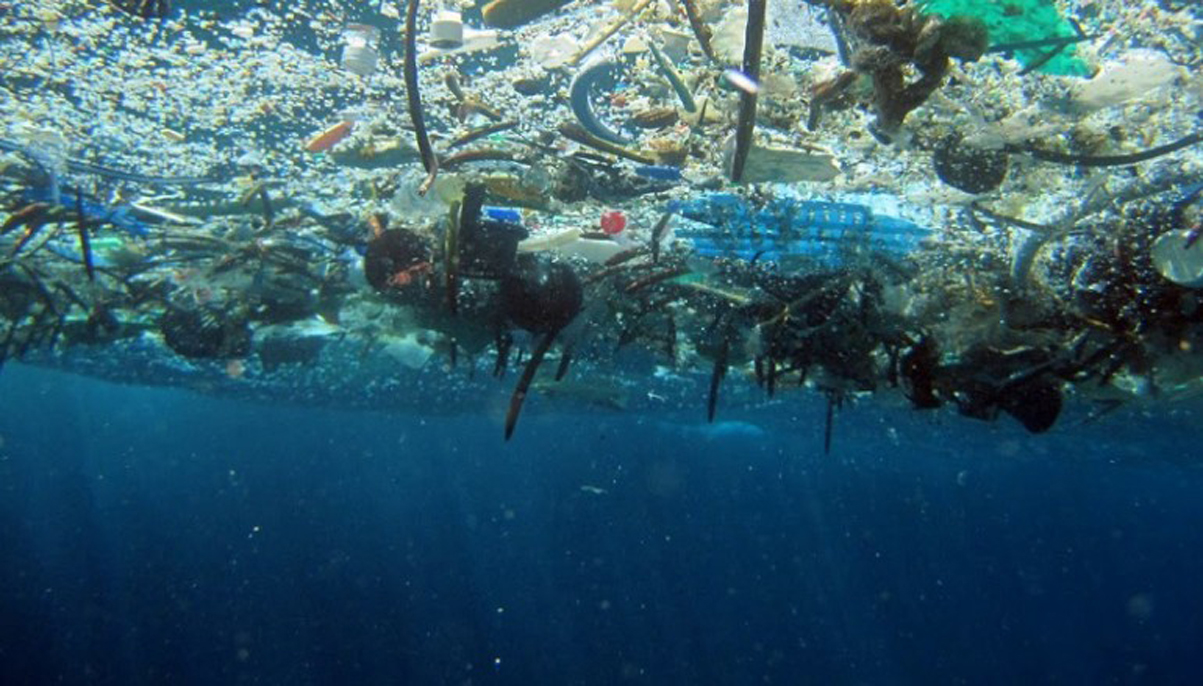
3. Pass Pesticide Legislation to Protect People & Pollinators
BAN CHLORPYRIFOS IN CT and Digitalize Pesticide Permit Applications at DEEP. Dow’s pesticide chlorpyrifos has devastating impacts on our health, children’s developing brains, and our environment. The pesticide, part of a class of chemicals developed for nerve gas by Nazi Germany, has also been linked to Parkinson’s disease and lung cancer. Chlorpyrifos was banned for home use in 2000. After years of study, the EPA determined that there are no safe levels of exposure and was set to ban all uses of this pesticide in 2015. However, our current administration reversed the decision. Read More…
According to CT DEEP’s data, farms only account for 10.8% of chlorpyrifos used. Golf courses account for 86% of chlorpyrifos use in CT, totaling more than 590 gallons in 2019—here’s a list of where it was used in 2018 and 2019. (Tara Cook-Littman, a concerned mom and member of the Fairfield Pollinator Pathway, filed a request through the Freedom of Information Act to gain access to the boxes of pesticide applications in Hartford, and that is how we have this list.
Tara’s work revealed the desperate need for digitizing the state’s pesticide applications
SUPPORT A BILL TO END PESTICIDE PREEMPTION IN CT and allow municipalities the right to make decisions about pesticide applications in their own towns. Currently municipal restrictions are preempted by State requirements, a law the pesticide industry has worked to keep in place. If your town would like to restrict a toxic pesticide, but the state allows its use, your town restriction would be preempted. More info here.
This letter went to your town leaders. Ask them to join this action to overturn preemption.
The sample letters below refer to the 2019 bill that was not called for a vote. We will update the bill numbers when they are set for the 2020 session.
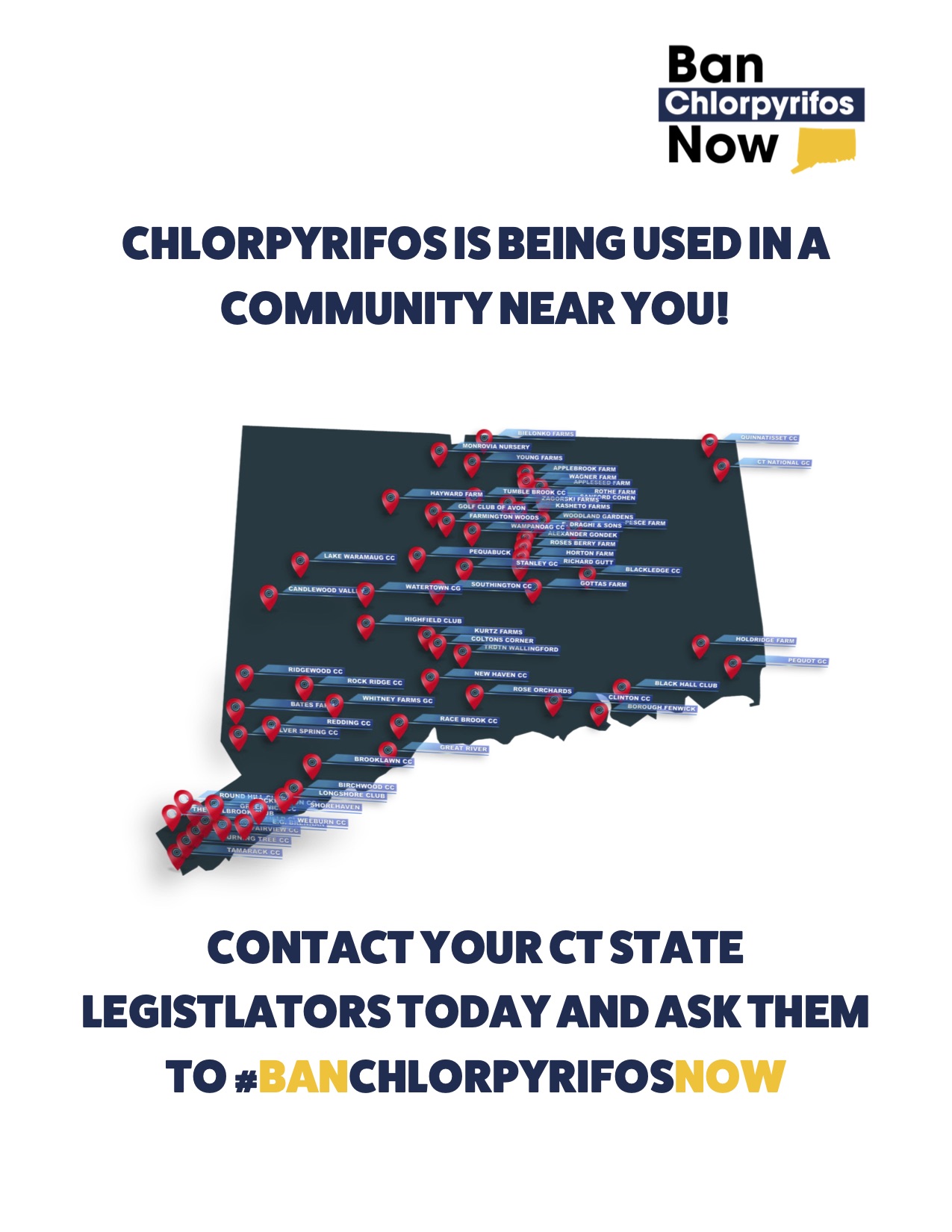
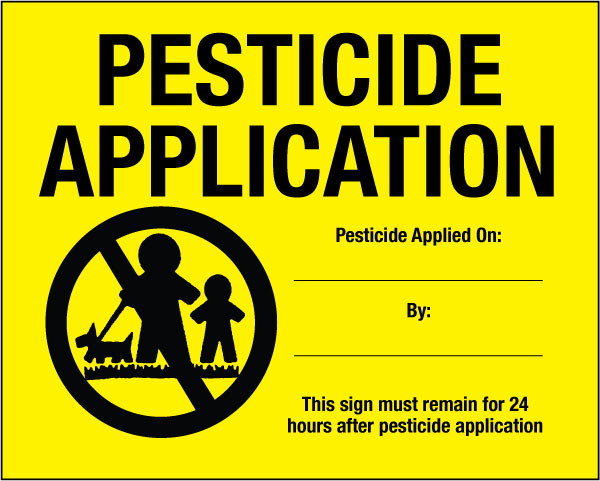
In 2019 NRWA focused on these legislative actions to protect the watershed AND THEY WERE PASSED:
1. Passing the State Water Plan. To provide that a public trust be retained in the water of the state. More information.
2. Banning Fracking Waste Statewide, first we helped pas bans in four watershed towns Redding, Ridgefield, Weston & Norwalk, then we supported the state ban.
3. A statewide ban on plastic bags. First we helped pass a local ban in Norwalk.
______________________________________________________________________________________________________________________________________________________
Our Advocacy Work
The Norwalk River Watershed Association serves as a guardian of the watershed, voicing concerns about threats to the area’s environment through pollution, development, legislation and regulation. NRWA frequently submits comments and suggestions on proposed development of or new regulations related to the watershed.
Recent comments regarding state and local projects/policies that affect our watershed:
2022 Written Comments Dept. Public Health Scoping of Grupes Dam rehabilitation project (New Canaan)
2022 Use of Pesticides at Wilton’s Parks and near Norwalk River
2022 Testimony in support of SB120 AN ACT CONCERNING THE USE OF CHLORPYRIFOS ON GOLF COURSES AND NEONICOTINOIDS FOR NONAGRICULTURAL USE
2022 Testimony in support SB 240 AAC THE USE OF SODIUM CHLORIDE TO MITIGATE SNOW AND ICE ACCUMULATIONS-SUPPORT
Comments on HB 5340 concerning updating the bottle bill in 2020
Comments on proposed revisions to District Water Supply and Sewer Ordinances, February 24, 2020
Letter protesting the overfishing of menhaden by Omega Protein in Virginia
Letter advocating for the protection of Norden Place conservation easement
Letter protesting overfishing that threatens striped bass populations in the Sound
Letter supporting the Weston plastic bag ban and fee on paper bags
Letter supporting HB 76 regarding pesticide use autonomy by municipalities
Letter supporting the 2019 bill to ban fracking waste state-wide
Letter to Gov. Cuomo of New York regarding the proposed sale of Plum Island
Comments on the proposed redevelopment of ASML property at 77 Danbury Road, Wilton
Comments on the proposed development of Wilton Heights at 300 Danbury Road, Wilton
Suggestions for Norwalk POCD 2018
Suggestions for Wilton POCD 2018
& More Information About the Ridgefield Charter Revision and How to Craft Your Letter
Comments Opposed to Federal Plans for Oil and Gas Drilling Offshore of CT, March 2018
Comments in Support of Banning Mosquito Misters, March 2018
Comments in Support of SB 103 A Bill To Ban Fracking Waste from CT, February 2018
WPC Draft State Water Plan, November 2017
CT DOT Plans for Redesigning the Route 7/Route 15 Interchange in Norwalk, October 2017
PURA Proposed acquisition of Aquarion Water by Eversource Energy, September 2017
CT DOT Walk Bridge Project, December 2016
Board members represent the interests of the watershed by taking part in public hearings, workshops, and related committees and other Boards such as:
FCRCP (Fairfield County Regional Conservation Partnership)
Land Trusts and Conservation Commissions play an important role by preserving access to natural spaces, clean water, and healthy ecosystems, all of which contribute to the well-being of communities and individuals. The Fairfield County Regional Conservation Partnership (www.fcrcp.net) makes these land trusts and commissions stronger by integrating ideas, leadership, and outreach across town boundaries, allowing them to protect more land over broader scales.
NRWI (Norwalk River Watershed Initiative)
The Norwalk River Watershed Initiative (NRWI) is a partnership among the seven watershed municipalities; federal and state governments; conservation and environmental groups; businesses and, you, the public. Efforts are focused on our primary mission which is to protect and improve the quality of our water and overall health of our river, streams, lakes and wetlands. The Initiative strives to bring together the efforts and resources of other groups with a similar focus including The Norwalk River Watershed Association, Trout Unlimited, HarborWatch at Earthplace, the Norwalk River Valley Trail, and local schools and communities. NRWI goals and objectives seek to engage our entire watershed community which requires a balance between environmental concerns with community and business development interests. The greatest chance for success is when all are vested and work together pooling resources toward a common goal – water systems that are healthy, clean and dynamic.
Norwalk River Valley Trail
The Norwalk River Valley Trail (NRVT) project aims to build 38 miles of multi-purpose trail connecting Calf Pasture Beach in Norwalk, Connecticut, and Rogers Park in Danbury, passing through Wilton, Ridgefield, and Redding on the way.
In addition to creating recreational opportunities for walkers, hikers, cyclists, kids, pets and – on some stretches – equestrians, the NRVT will offer a green and healthy transportation alternative to reach rail stations, schools, offices, and businesses.
Earthplace’s Harbor Watch
Harbor Watch monitors a wide area of watershed from the Pequonnock River in Bridgeport to Holly Pond in Stamford in an attempt to protect and improve the biological integrity of Long Island Sound. It is the leading volunteer assisted water quality monitoring program in Fairfield County, which has inspired water quality activism throughout the region. Through this volunteer-driven model, the program simultaneously addresses Long Island Sound contamination issues and educates the environmental scientists of the future through hands-on research and experiential learning.
Trout Unlimited
The Mianus Chapter of Trout Unlimited is part of a national conservation organization dedicated to conserving, protecting and restoring our coldwater fisheries. As a conservation organization, the Mianus Chapter is primarily involved in active restoration work on local rivers and streams, but also promotes educational activities, hosts regular fishing outings and works with local and state agencies and regional environmental organizations to plan and implement conservation programs.
